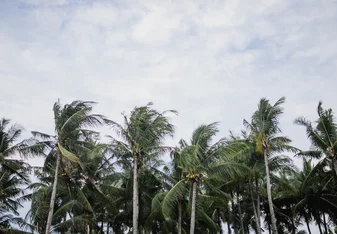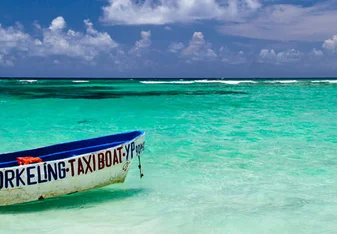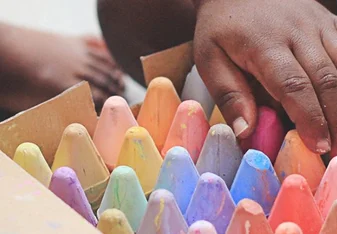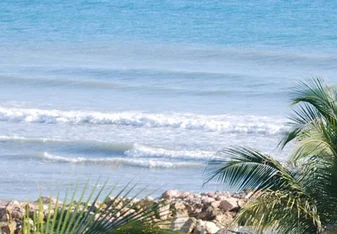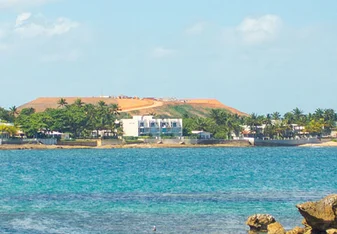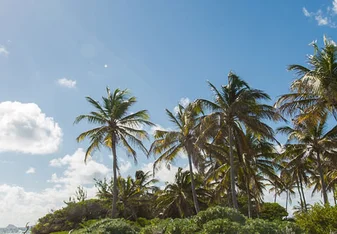Volunteer in Cuba
About
Cuba is a unique country, mostly thanks to its political and social developments since the Revolution of 1959. Operating under an economic and political embargo imposed by the US, Cuba suffers from a lack of resources and international trade opportunities, which has led to a low national wealth level. Despite this, Cuban citizens are all provided with excellent, free education (at all levels), healthcare and social care. The country also has an innovative and productive scientific development sector and a growing sustainability sector.
For U.S. citizens and citizens of other countries, you can volunteer in Cuba with a variety of programs. Unlike other destinations, Cuba's one of the places where you really are better off volunteering through a program provider -- your chances of finding something independently is pretty low. For more details, read our article on how the updated laws on travel to Cuba for U.S. citizens have impacted volunteer projects.
To get you started volunteering in Cuba, explore your list of options below and read up on the various entry/exit requirements and logistics you'll have to think about in our guide.
Project Types
Contrary to what many people may think, not all volunteer initiatives abroad require official qualifications or applicable education. The local communities in which you choose to volunteer are simply grateful that you are there in their best interest; volunteer organizations recognize this and ensure you receive any relevant training onsite. The most valuable asset you can bring is a positive attitude; you must be willing to work hard, be compassionate, and show flexibility in your volunteer tasks.
Conservation
Cuba is home to a rich variety of wildlife and numerous national parks. You may assist in scientific research of wildlife studies and conservation or simply collect data on various native species. You will gain valuable career experience if you intend to work in wildlife conservation or any natural science in the future.
Health
Cuba actually boasts one of the best health care systems in the world with medical technology being one of the country’s most prominent exports. Choosing to volunteer with an organization offering health care initiatives will provide you with an abundance of career experience and insights.
Youth and Education
If you are a social butterfly who enjoys working with or teaching children, has a passion for humanitarian efforts, or simply want to make a valuable impact on the lives of local families, you may be pleased to know that it is possible to participate in these rewarding volunteer projects without any pre-requisite qualifications. There are volunteer organizations that simultaneously provide projects under this category in Cuba, allowing you the choice of work type you prefer. There is less opportunity for teaching English in Cuba in recent years, as there are now many Cuban teachers fluent in English and other languages across the island. English-speaking visitors will always find Cubans eager to practice their conversation skills, however, especially at Universities.
Construction
Volunteering in the area of construction demands hard physical labor but grants you the honor of working alongside Cuba’s locals. Together you will provide construction and/or agricultural support that will be of value to the entire local Cuban community.
Solidarity
Cuba is a country that has been targeted by aggressive US policy for over fifty years. In order to counter the often-exaggerated claims made by other countries, Cuban organizations such as ICAP (Instituto Cubano de Amistad con los Pueblos) welcome international visitors to take part in “Brigada Solidaridad”. These programs generally include some agricultural work, as well as chances to meet with Cuban professionals across a range of fields, students, workers, and campaigners.
Agriculture
Cuba relies heavily upon domestic agriculture in food production, as the country is unable to trade with its nearest neighbor (the US) for vital food supplies. Workers in community co-operatives and nationally organized farms welcome visitors and volunteers to help with the still mostly manual labor required. There is a growing emphasis on organic, sustainable agriculture across the island which will interest any green-minded volunteers!
Arts
Cuba has a vibrant arts culture, with specialist schools for dance, music, theatre, film, and the visual arts spread across all districts. Community-based arts projects are encouraged, and exchanges with international volunteers are welcomed.
Planning Your Trip
Culture of Cuba
Cuba is a Spanish-speaking country, although you will find that more and more people know at least a little English thanks to the growing tourist business, particularly around Havana. Large hotels and tourist-aimed shops will often have at least one member of staff able to speak some English. However, it would be helpful to learn at least basic pleasantries in Spanish before traveling. Additionally, Cuban Spanish is a particularly fast and distinctive dialect, so be prepared to be totally lost for the first few days, even if your Spanish is already pretty good.
Cuban food is quite simple, with a tendency towards rich rice and meat dishes. Vegetarianism is very rare, and you may find it difficult to find food that is not prepared with animal products (even vegetable and rice dishes are often cooked with pork or other animal fats). If you have any special dietary requirements it may be useful to carry an explanation of these in Spanish, though be prepared to face difficulties in finding appropriate food.
Cubans tend to be quite laid-back, and not much gets done in a hurry. If you need to do anything official it is good to leave plenty of time to spare in case of delays, and be prepared to queue patiently for buses or other services. If you are working, especially outdoors, don’t worry about taking breaks when you need them.
Volunteering Tips
Know Before You Go: It is unlikely that you will have any of your expenses paid for by the volunteer organization unless you have a specific technical skill. With that being said, this would still be a rare occurrence and depend solely on agreements between you and the organization. Conveniently, however, it is common to pay a one-time all-inclusive price, (accommodation, meals, local excursions, sometimes round-trip flights). This would exclude personal spending money.
How to Save Money While Volunteering: Turn off your cell phone and use SKYPE or email. Avoid franchise stores and purchase items at local markets. Look into the option of a homestay in exchange for a small fee or household chores. A great way to have the ultimate Cuban culinary experience at a low cost is to make the pilgrimage to Old Havana. Here you will find paladares which are small restaurants seating no more than 12 by law and are operated out of private homes.
Questions to Ask: What skills or qualities can I expect to develop when volunteering with this organization? What costs are included and what costs will be my responsibility? What is an average volunteer’s day like? What type of relationship does the organization have with Cuba and its local communities? What are some cultural experiences I can expect to have?
Health and Safety of Volunteers in Cuba
The decision to travel is your responsibility. You are also responsible for your personal safety abroad. Here are a few insider points to help enable well-informed decisions along your travels. Cuba’s medical services are acceptable, although basic medicine and equipment are not always available to travelers. Knowing this, you should be prepared to bring along basic medicine as well as sufficient amounts of any required prescription medication; it is your responsibility to know whether or not your prescriptions are prohibited in Cuba.
In the event that you should require medical assistance, the Cira Garcia Hospital offers health services reserved for foreigners. International Servimed clinics provide emergency medical care and are located in many major tourist areas around the island. In most hospitals, a guarantee of payment (or payment in cash) must be provided in advance. Check with your insurance company for payment/reimbursement procedures.
You will be well protected as long as you have the following simple vaccinations Hepatitis A, Hepatitis B, Typhoid, and Rabies. Please note that the level of risk and/or variation of vaccine-preventable diseases can change at any time. Consult your doctor before traveling anywhere.
In general, Cuba is a very safe destination; Cuban cities are comparably as safe as the average American city. As with any location around the world, Cuba occasionally experiences petty crimes such as pickpocketing, particularly in the larger and crowded tourist areas. Cubans face serious consequences for interfering with tourists just as strongly as tourists are held accountable to the country’s local laws.
In the event that you should ever have to report a crime to local police, you should insist on receiving the document Comprobante de Denuncia as confirmation that a report has been made. Take heed that Police officers commonly speak only Spanish. Avoid military zones and any other restricted or heavily guarded areas. Photographing military or police installations or personnel, or harbor, rail and airport facilities is forbidden and will result in consequences. Avoid engagement in black-market transactions as this is illegal and can lead to difficulties with the Cuban authorities.
Before traveling to Cuba, make sure you are up to date on current government-issued travel reports and warnings, review import and export restrictions, research any weather or natural disaster obstacles, and make sure you fully understand the guidelines of your travel insurance.
Money
Cuba has two official currencies which are available in both paper and coin form. There is the Cuban convertible Peso (CUC) which is also known as the ‘tourist dollar,’ as well as the national Peso (Moneda Nacional or MN). Transactions involving foreigners rarely take place in MN, however, visitors should familiarize themselves with this local currency as merchants will commonly attempt to give change back in MN instead of CUC. Beware of this scam as the CUC is worth substantially more than the MN.
Automated Banking Machines (ABMs) are rare and don’t always work in Cuba. Most foreign currencies can be exchanged at Cadeca Exchange Houses; note that the exchange of US currency is subject to an additional fee. You may find exchange locations in international airports, urban areas, banks, and major hotels. Make sure your CUCs are exchanged prior to departing Cuba as it is not possible to convert this tourist dollar outside of the country. Credit cards issued by American financial institutions and/or affiliated with American banks are not accepted.
Legal Considerations
Entry and Exit Requirements
Though relations between Cuba and the U.S. are the warmest they’ve been in decades, the embargo hasn’t vanished completely. There are still specific restrictions on how U.S. citizens can travel to Cuba and what they can do while there. Tourism is not one of the approved reasons for travel to Cuba, but volunteering is.
According to OFAC’s Cuba FAQ, volunteering in Cuba is permitted through a general license for the following activities:
- Medical and health-related projects
- Construction projects intended to benefit legitimately independent civil society groups
- Environmental projects
- Projects involving formal or non-formal educational training, within Cuba or off-island, on the following topics: entrepreneurship and business, civil education, journalism, advocacy and organizing, adult literacy, or vocational skills
- Community-based grassroots projects
- Projects suitable to the development of small-scale private enterprise
- Projects that are related to agricultural and rural development that promote independent activity
- Microfinancing projects
- Projects to meet basic human needs (like food sustainability or health education)
Upon arriving in Cuba, you must have proof of a departure ticket and medical insurance and your passport must be valid 6 months beyond your planned departure date. You will receive a Cuban Visa, otherwise known as a Cuban Tourist Card. Your allowed length of stay varies depending on your country of origin so be sure to check with the Cuban Embassy of your residing country prior to making your travel arrangements.
For a small fee, extensions to your time in Cuba can be made; the length, again, depending on the country you are from. Typically the maximum time allowed in Cuba on a tourist visa is 6 months.
For American citizens, you are allowed to legally enter Cuba to volunteer -- typically on a People to People visa. Your volunteer program should assist you with the visa (and this is one of the reasons why we'd recommend volunteering through a provider and not on your own -- not to mention it's hard to find independent programs).












